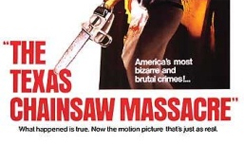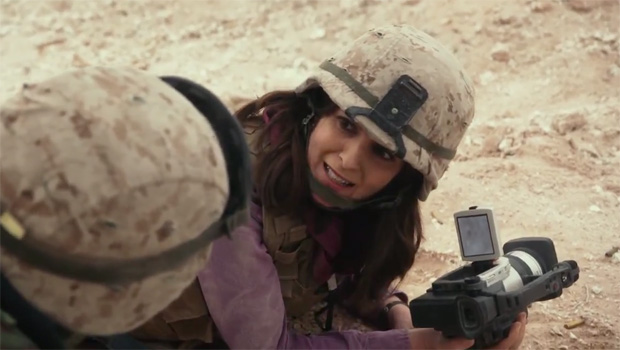Reel life: When movies are "based on a true story"
BASED ON A TRUE STORY: It's a boast that can be a plus for a movie during Oscar season. Whether the claim holds up to scrutiny is another matter altogether. Our Cover Story is reported by Martha Teichner:
Of the eight nominees for Best Picture, four of them have something in common: "The Big Short," "The Revenant," "Bridge of Spies" and "Spotlight" -- half the nominated films this year -- claim to be "Based on a true story," or "Inspired by true events."
Last year's Best Picture nominees? Same thing, 4 out of 8 ("American Sniper," "The Imitation Game," "Selma" and "The Theory of Everything").
The year before that, a whopping 6 out of 9, including "12 Years a Slave," which won.
Hollywood tends to trot these stories out right around awards season, but really, how true are they? How true should they be? Asked what goes through her mind when she hears the phrase "Based on a true story," the response by Ann Hornaday, chief film critic for the Washington Post, was, "Hang on to your hat!
"Generally if you see 'based on,' you tend to assume that the filmmaker is sending the signal that everything happened," she told Teichner. "When you see 'inspired by,' you get the signal that some more liberties are going to be taken."
It wasn't a true story, but that's how "The Texas Chainsaw Massacre" was marketed.
More recently, 2013 Best Picture-winner, "Argo," was about the actual rescue of six U.S. diplomats from Iran, but the nail-biter scene where the Iranian police are chasing their departing plane didn't happen.
"Some of the things in 'The Wolf of Wall Street' were so over-the-top and so insane, having not had people corroborate them for me, I wouldn't have believed it," said screenwriter Terence Winter. "But they absolutely happened."
But, even so, Winter deviated from finance fraudster Jordan Belfort's memoir, some ... for example, he changed Belfort's unfortunate car from a Mercedes to a Lamborghini.
"I think I can look at the story and say, all right, this is germane to the telling of it, this is in the spirit of what actually happened," he said. "I can mix and match facts."
"If it's not a documentary -- and nothing I've worked on is ever purported to be -- then I have the latitude to say, 'OK, look, this is an entertainment.'"
The new Tina Fey movie, "Whisky, Tango, Foxtrot," out this Friday, is based on reporter Kim Barker's experiences in Afghanistan ... more or less.
"Tina Fey is much shorter than I am, obviously -- I'm 5'10"," said Barker. "But actually, her name in the movie is Kim Baker, not Kim Barker. In the movie, she is a TV journalist; I am a print journalist."
That's just part of the weirdness of experiencing her life -- and her book about it -- Hollywood-ized.
"My reaction during the entire movie was, 'Please, let it be over .... please, let it be over ... please, let it not embarrass me,'" Barker said. "And then it was like, at a certain point, I started breathing more. And it felt like, 'Oh, this is okay. This is actually a movie, and it's good.'"
In the end, she felt, the liberties taken were OK. "These are the things that happen with movies," she said. "I don't think it takes away from the fact that the narrative arc in the movie and the book are pretty much the same, and that's what I cared about. It's not exactly true, but it's truthy."
But what if the story being told is history? Think of Oliver Stone's 1991 film, "JFK," still controversial because it explores the conspiracy theory version of the Kennedy assassination.
"There are many people who saw Oliver Stone's 'JFK' who absolutely believe the version of events that they saw in that film," said Teichner. "That's where they get their history."
"I think that for sophisticated viewers he makes it very clear that this is an almost visionary interpretation of events on his part," said Hornaday. "But I take your point, that that is an inherent danger, but I think the responsibility lies with the viewer as well, especially at this time. If schools aren't teaching history, that's a problem in and of itself. But they should be teaching media literacy at this point."
The makers of the newly-released bio-pic, "Race," about runner Jesse Owens, were given practically no opportunity to fudge the facts. Owens won four gold medals at the 1936 Berlin Olympics, as Hitler watched.
Owens' daughters, Marlene Owens Rankin and Gloria Owens Hemphill, insisted on involvement and script approval.
"We reviewed the script page by page, line by line, made a number of adjustments, which they honored," said Marlene. "And the reason that was important was so that history wouldn't be re-written, and that the facts be right."
There was also a scene involving some nudity which, Marlene said, "We thought, 'Hmmm, no, that really doesn't need to stay in there!' We just didn't think it was needed, necessary, or appropriate."
People who make film exercise artistic license, but Gloria said, "This is our life."
Accuracy also matters to the Los Angeles Press Club, which Thursday handed out its first-ever Veritas Award for the best film based on or inspired by real events or people.
Nominees were judged equally on fidelity to their subject matter and artistic excellence. The winner: "Spotlight," about the Boston Globe's investigation of pedophile priests.
So, is it an omen? When the envelope is opened at the Oscars tonight, will the winner be the truth?
For more info:
- Ann Hornaday, the Washington Post
- "The Wolf of Wall Street" (Paramount Pictures)
- "Whiskey Tango Foxtrot" (Paramount Pictures)
- "JFK" (Warner Brothers)
- "Race" (Focus Features)
- Los Angeles Press Club

